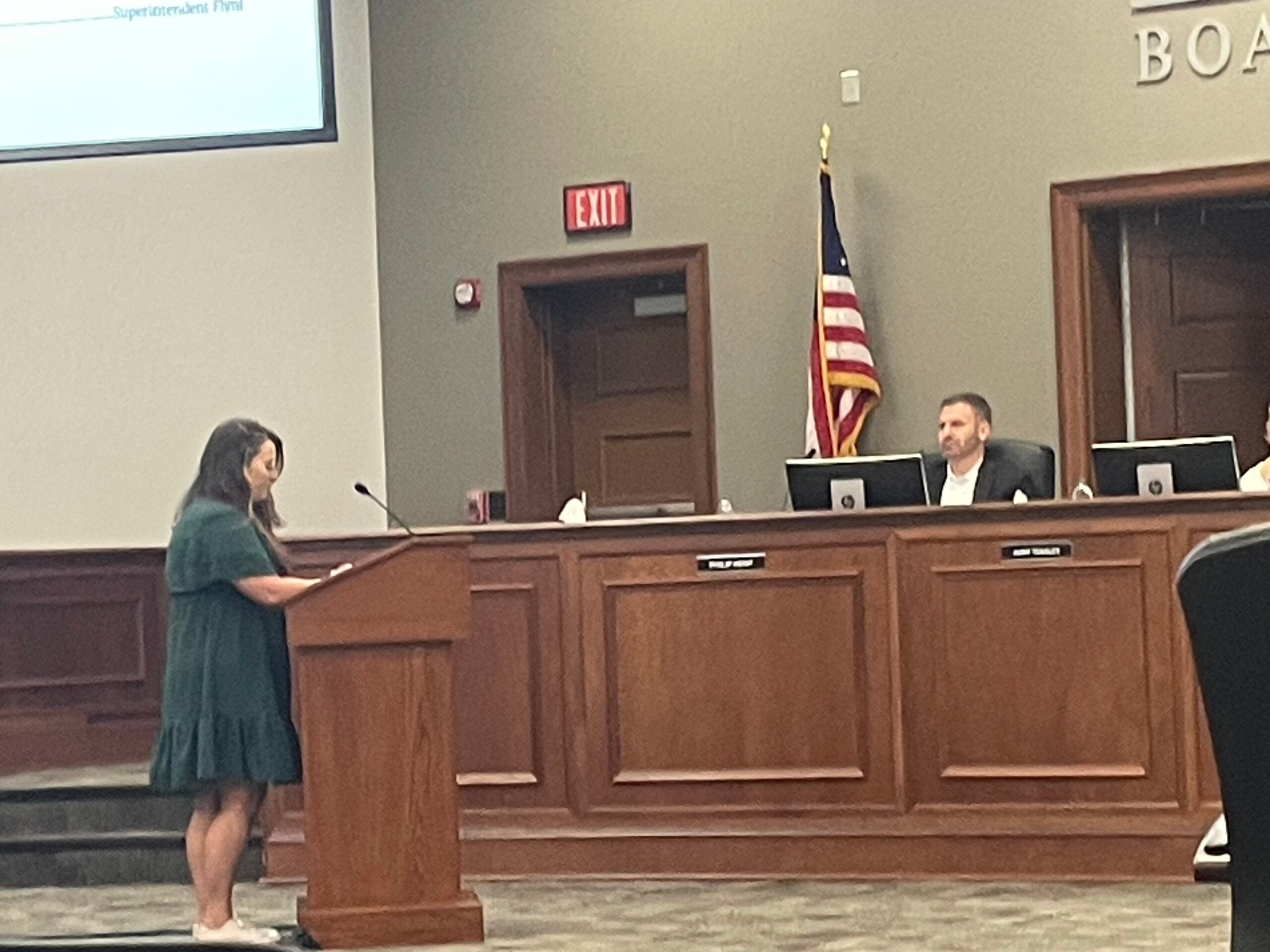Policies regarding the challenging or removal of books and other materials from school libraries proved a salient topic during the Columbia County Board of Education’s (CCBOE) regular meeting, Tuesday night.
Last month, Priscilla Bence, a frequent attendee of the CCBOE meetings presented 32 books to the challenged for removal from district school libraries, a list that included “The Bluest Eye” by Toni Morrison, “The Fault in Our Stars” by John Greene and “The Lovely Bones” by Alice Sebold.
On Tuesday, 11 residents came to speak before the school board during the meeting’s public participation portion. Bence was among them, encouraging the board to stiffen district policy to allow citizens like Bence, who does not have children currently enrolled in district schools, to challenge school materials.
“There are children who come into the high school libraries who are either raped, or they rape,” said Bence. “Because when children read things that are graphic, which they are… We’re turning a blind eye to it now, bragging like it doesn’t exist… We care about that, and we’re invested in the system.”
READ MORE: Mayor’s firm takes out $935,000 short-term loan
Most of the other speakers decried the book challenges, and any proposed policy that would allow citizens without children enrolled in the district to seek to have materials removed from school libraries.
Megan Chamberlain, who has two children enrolled in district schools, asked the board to dismiss book challenging proposals from those without kids or grandkids in Columbia County schools, citing “The Fault in Our Stars” as a book that can help teens process losing friends to terminal diseases.
Karin Parham also decried the challenges, alluding to another set of challenges in May, saying “the public was never notified and books were banned behind closed doors.” Parham went on to indicate that other books may have been “quietly removed” in the “past years,” making “all removals since 2021 suspect.”
Kaitlin Gidden, another parent from District 3, said before the board that the community could do more to protect children other than removing books from libraries.
READ MORE: Cameras track usage as Augusta weighs future of numerous parks
“Stating that a teenager is more likely to be raped because they read a story with a rape in it is the most insane thing I have heard in a while,” Gidden said. “Research shows they do the opposite.”
Earlier in the meeting, during Flynt’s superintendent report presentation, LeAnne Gregg, the school district’s chief officer of Curriculum, Assessment and Instruction, refreshed board members on two coordinating procedures for challenges to instructional media: IFOP 5 and IFOP 9.
IFOP 5, Gregg explained, is the district’s procedure that outlines its “processes for the selection and review of board approved resources that [the school district uses] for… courses across K-12” as well as sex education and abuse prevention materials.
IFOP 9 outlines the processes for the “general operation, the selection review or any reconsideration of media materials” in school media centers. Responding to questioning by District 4 board member Katie Allen, Gregg explained that only parents or guardians of children enrolled in the school district may submit challenges to materials, according to IFOP 9’s procedure.
When Allen asked if “citizens have a right as non-parents to file a challenge,” Gregg responded “No,” but that information that leads to a challenge may come to the district “via a lot of different methods.”
“It could be a social media post… it could be something that was noted by our media specialists that would warrant a district review,” said Gregg. “And in that instance the school district becomes the entity that’s challenging the material, not necessarily where it came from.”
READ MORE: MIS Committee approves use of NDA regarding cybersecurity
Allen then asked if under IFOP 9, “anyone can just tell the school district, or the school district can see something on social media” and initiate a challenge. Chairman David Dekle rebutted this take on the policy saying that the school district’s Review Committee can initiate such appeals for “any number of reasons.”
The school board’s attorney, Will Fletcher, when Allen asked for his input, admitted he had not reviewed the policy, but could say that the school district “does have discretion to as to what materials it has available as far as review processes.”
Gregg would ultimately reiterate that the only parties who may file challenges are parents or permanent guardians of students, or the school system.
“It’s important that we note and remember that both the school level committee and the district level committee, when considering any kind of challenge, parents hold the majority representation and these are the decisions of a committee, and not just one particular person,” she said. Gregg went on to say regarding appeals that the district may “choose to initiate a review at any time,” and that the Department of Curriculum Instruction would review any information that should come to light that warrants it, and decide whether the formal process needed to be initiated.
“And at that time,” she said, “the complainant or the challenge becomes, the school district, not where that information may have come from or arisen from anything else.”
Skyler Q. Andrews is a staff reporter covering business for The Augusta Press. Reach him at skyler@theaugustapress.com.











